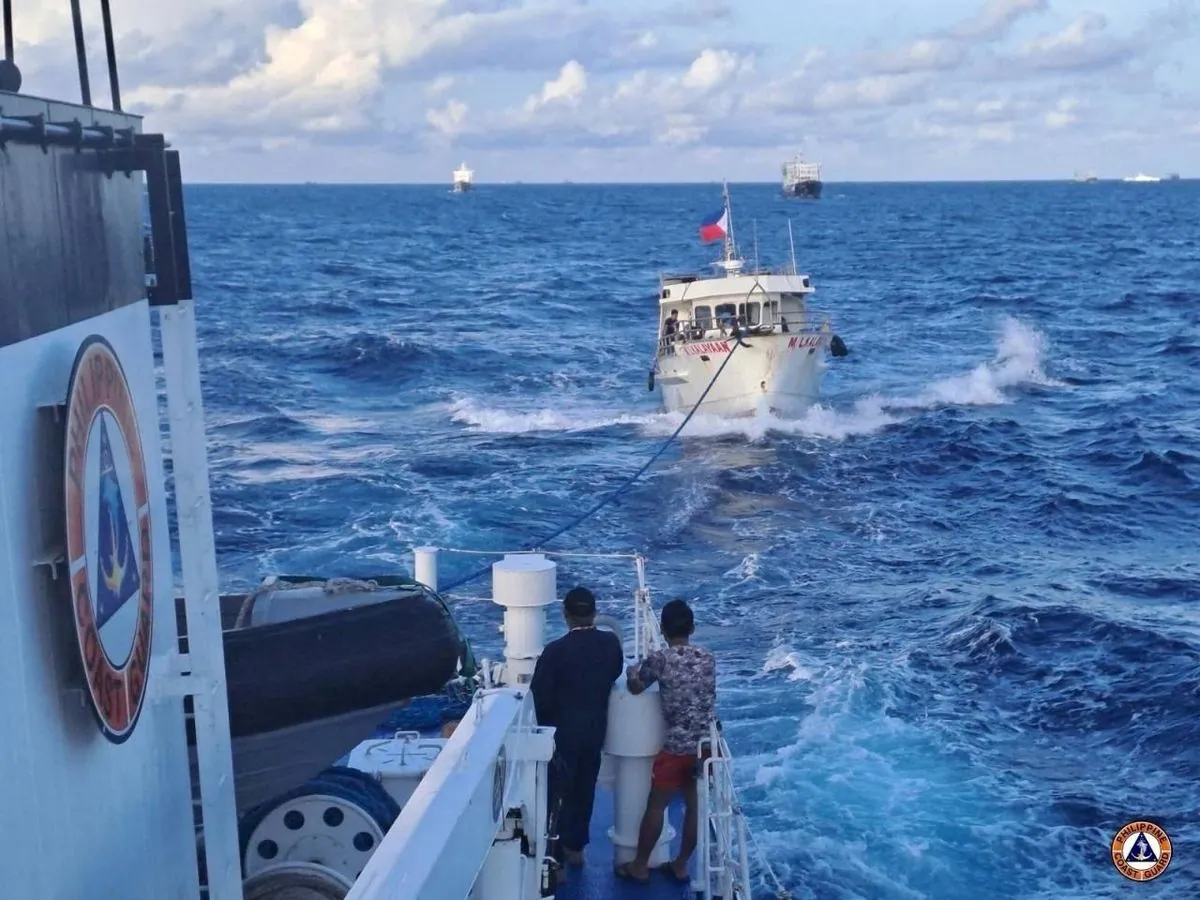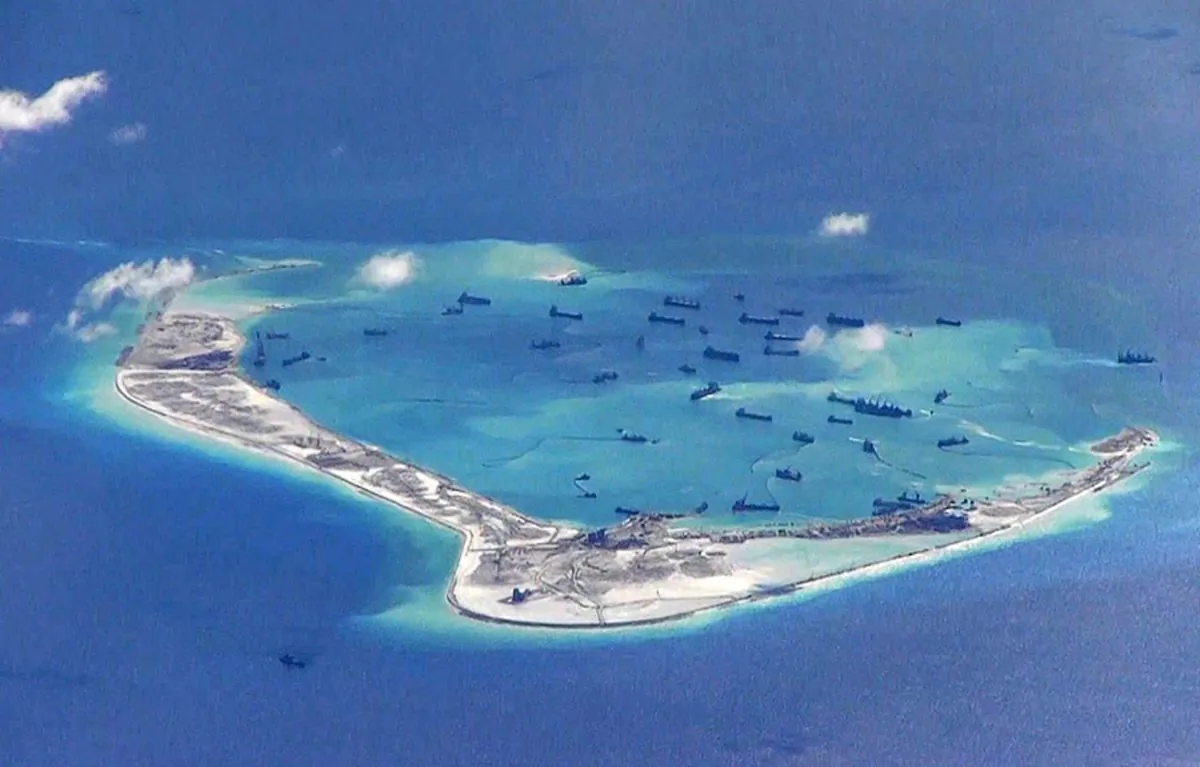Philippines Condemns China's 'Illegal' Actions in South China Sea Clash
Philippines accuses China of ramming vessel in South China Sea. Defense Secretary calls actions "patently illegal" amid ongoing maritime disputes and U.S. support concerns.

In a recent development highlighting the ongoing tensions in the South China Sea, the Philippines has strongly condemned China's actions during a maritime incident. The clash, which occurred on August 25, 2024, has reignited concerns over the region's stability and the complex web of territorial disputes.
Gilberto Teodoro, the Philippine Defense Secretary, characterized China's behavior as "patently illegal" in a statement to reporters. The incident involved Chinese vessels allegedly ramming and using water cannons against a Philippine fisheries vessel near Sabina shoal. This vessel was reportedly on a mission to resupply Filipino fishermen with essential provisions.
The South China Sea, covering approximately 3.5 million square kilometers, has been a hotbed of contention for years. It's estimated to hold significant natural resources, including 11 billion barrels of oil and 190 trillion cubic feet of natural gas, making it a strategically important area for the surrounding nations.
China's coast guard presented a contrasting narrative, claiming that the Philippine vessel "ignored repeated serious warnings and deliberately approached and rammed" their law enforcement boat. This conflicting account underscores the complexity of the situation and the differing perspectives of the involved parties.
The incident has brought attention to the potential involvement of the United States, a key ally of the Philippines. The U.S.-Philippines Mutual Defense Treaty, signed in 1951, has been a cornerstone of their alliance. However, Teodoro emphasized the importance of deterrence rather than focusing solely on the possibility of armed conflict.
"Ironclad commitment to aid the Philippines against armed attacks on its vessels and soldiers in the South China Sea."
This statement reflects the ongoing U.S. policy of conducting "Freedom of Navigation" operations in the region to challenge what it perceives as excessive maritime claims.
The South China Sea dispute involves multiple nations, including China, Taiwan, Vietnam, Malaysia, Indonesia, and Brunei. China's claims, demarcated by the Nine-Dash Line, encompass a major part of the sea. However, an international arbitral tribunal in The Hague ruled in 2016 that China's claim had no basis under international law, a decision Beijing has consistently rejected.

The dispute has far-reaching implications beyond territorial claims. The South China Sea is a crucial maritime route, with one-third of the world's shipping passing through its waters. It's also rich in marine biodiversity, hosting about 3,000 species of fish, highlighting the environmental stakes in the ongoing conflict.
As tensions persist, diplomatic efforts continue. The Association of Southeast Asian Nations (ASEAN) has been working on a Code of Conduct for the South China Sea since 2002, aiming to establish guidelines for peaceful resolution of disputes in the region.
The recent clash serves as a reminder of the fragile nature of peace in the South China Sea and the ongoing need for dialogue and conflict resolution mechanisms to prevent escalation in this strategically vital waterway.


































